I haven’t seen any of the reaction to this episode of Chainsaw Man, including (as usual) Samu’s impressions of it. But if we follow the usual pattern with me and insanely popular anime, I’m going to guess it was pretty negative. Almost (but not quite) invariably with super-trendy titles I like the episodes most people don’t, and the fan favorites leave me cold. CSM hasn’t clicked much with me the past few weeks, but this was a marked improvement – getting my hopes up a week before the season finale, I suppose.
Why is that? For someone on the fence about a show, that’s no doubt the most important question. I think it’s because this was an ep that palpably wasn’t trying too hard. It lacked the “look at me!” quality that creeps into Fujimoto’s work sometimes (certainly this adaptation). I suspect that quality may be a reflection of just how young the mangaka is (mid 20’s when this was written) – and possibly that’s partly why it tends to get on my nerves. Fujimoto is a massive talent and I feel like sometimes he’s too keen to show that off. The thing is, a writer and artist that talented doesn’t need to flaunt it – less is more, and the work can speak for itself. That may be an evolution we see in his work as he gets older (if he doesn’t burn out young, as some meteoric talents do).
I liked the quietness about this episode. The (relative) lack of histrionics, the absence of heavy background music, the way it painted a picture of a fucked-up situation in subdued tones. Starting with Aki, who as if he wasn’t already a walking doom flag, now has a contract with the Future Devil (Hiroki), who’s willing to park itself in Aki’s right eye just so he can get a front-row seat for Aki’s spectacular demise. Meanwhile Kishibe – who’s grown “attached” to Denji and Power – gives them a break and reduces their slaughter sessions to once a week as a reward for their progress (which is enough at least to draw blood).
The confab between Kishibe and Makima was one of two excellent scenes she was involved in here. It makes it pretty clear that she was intimately involved in the massacre – that, and that Kishibe knows about it and is putting her on notice that he’s going to let her play this game only as long as he deems her a net positive. At this point I don’t take anything Makima says – even when she’s seemingly being cold and practical – at face value. Maybe she’s a big “necessary evil” (that will come up again later) person and really does have humanity’s best interests at heart. Or maybe she’s altogether more sinister even that that – neither would surprise me.
As Sawatari plans to take out the rest of Special Division 4 with a zombie army (of course), Makima has another fascinating conversation – this time with a yakuza boss at the head of the family the zaku involved in the massacre belong to. He’s a cocky bastard this guy, but he has no idea who he’s dealing with. This is where the necessary evil theme re-emerges, and somewhat hilariously. He condescendingly lectures Makima on the subject, having no idea that she’s already taken the concept farther than he’s ever dreamed of. They deserve each other, these two, but I know which one would come out on top if she ever got serious.
During the battle with the zombies we meet several more of Division 4 – the Shark Fiend (who’s played by Hanae Natsuki, ROFL), the Violence Fiend, the Spider Devil, and the one it’s hinted is the most important, the Angel Devil (interesting concept). I think it’s pretty safe to assume that the Gun Devil is pulling Sawatari’s strings, but of course he’s the dark matter of the series at this point – his presence dramatically impacting everything in this universe, but as yet unseen directly. Whether that changes in next week’s finale or we have to wait until the second season I don’t know (I’d bet on the latter) but that’s going to be a hotly-anticipated debut to be sure.
Samu’s Impression:
It’s the eleventh hour and honestly this wasn’t near as hyped as I anticipated. Although it never looks bad this is one of those few episodes we’ve had this cour which clearly hasn’t had the same care and detail put into the animation; where last week we had the extreme slow-mo moments that didn’t even need it, this time it felt like we got just an acceptable flow to the scenes which didn’t really bring out much of the impact that could have been there otherwise.
Makima’s interaction with the yakuza and the conversation on necessary evil is an interesting one where we’re shown just enough of what she’s capable of before missing whatever happened in between that reveal of the bag of eyes and her walking out, but the impact is felt elsewhere just as she managed in Kyoto. Earlier in the episode Kishibe even confronted her about her knowledge of the earlier planned attack and that he isn’t actually too bothered by what she’s planning so long as it’s in humanity’s best interest. But of course any form of threat seems not to phase Makima and we’re left with more questions at this stage about what exactly she’s about, even if Kishibe himself claims that part of what she’s preaching is a lie.
Otherwise the rest of the episode was setting up for this final showdown of the arc and introducing the rest of the Special Division who were already on the scene. Some are more prominent than others, particularly Angel Devil and his passive nature, though it’s the Shark Fiend (who hasn’t been named yet) who is my personal fav of the bunch and a good contender for best boy. As for the others: Denji, Power, and Kobeni are on the scene with Aki, who seems to be pitied by the rather quirky Future Devil for whatever death awaits him and didn’t even request a trade for exchanging contracts. Yet again we have more hints that Aki’s time in the world is finite, just as our time with this cour is already about to end next week – hopefully with an episode more impactful than this.


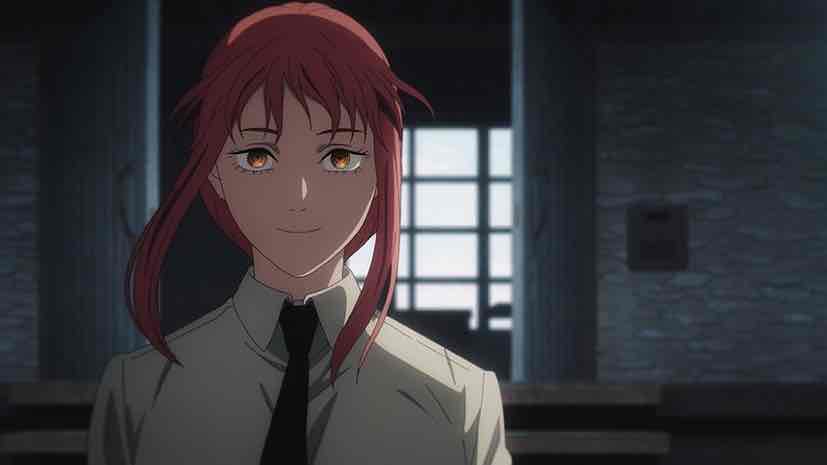
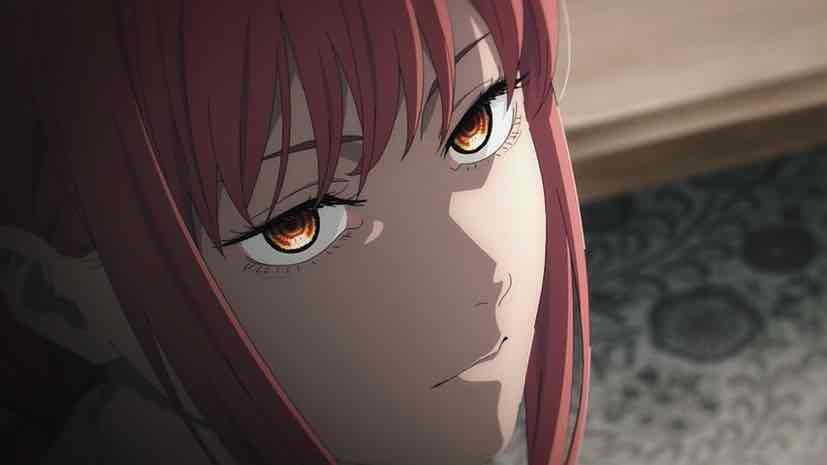
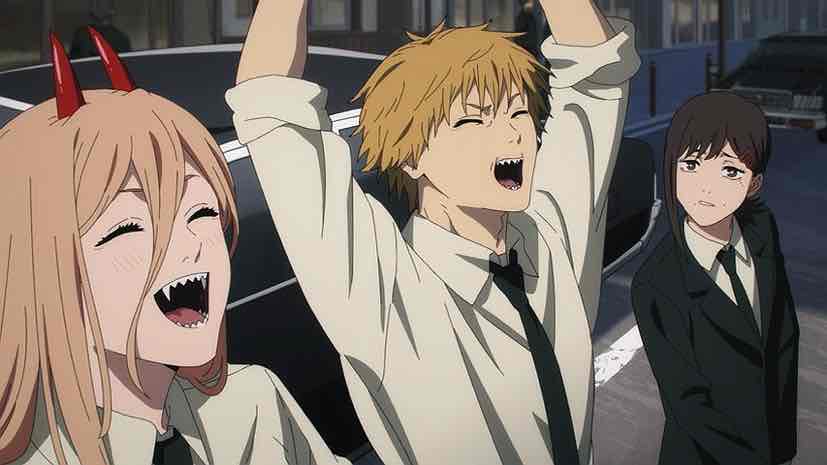
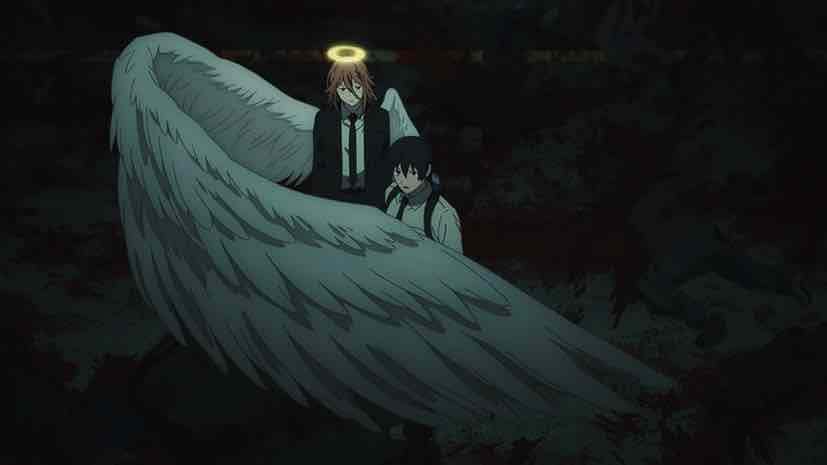
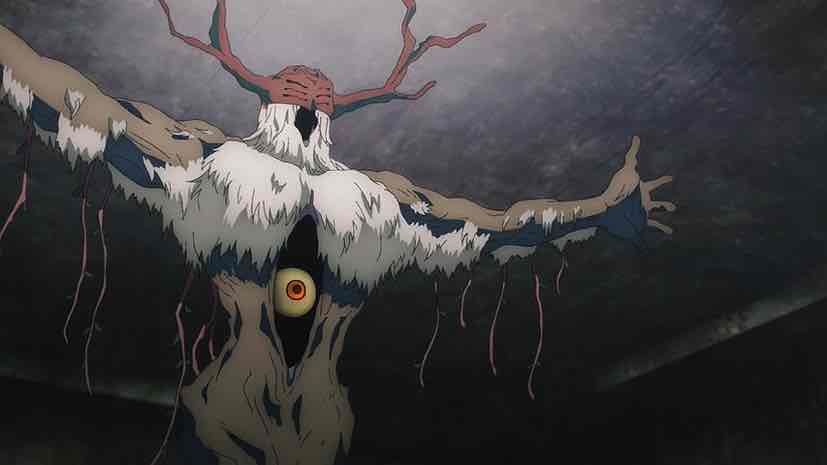
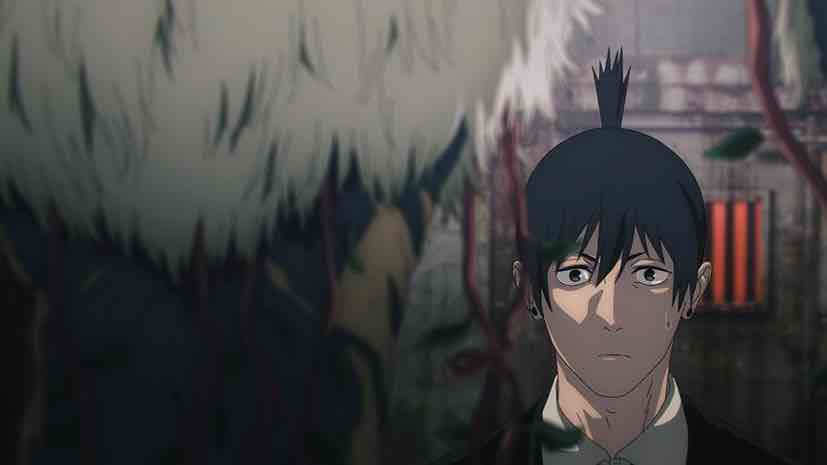
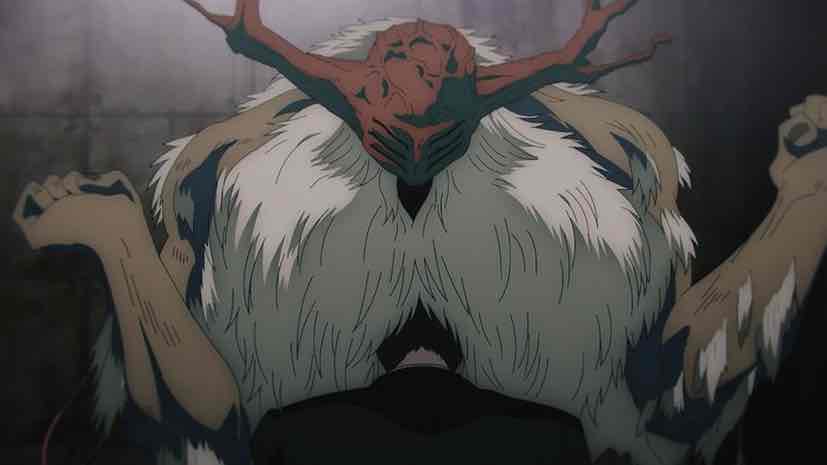
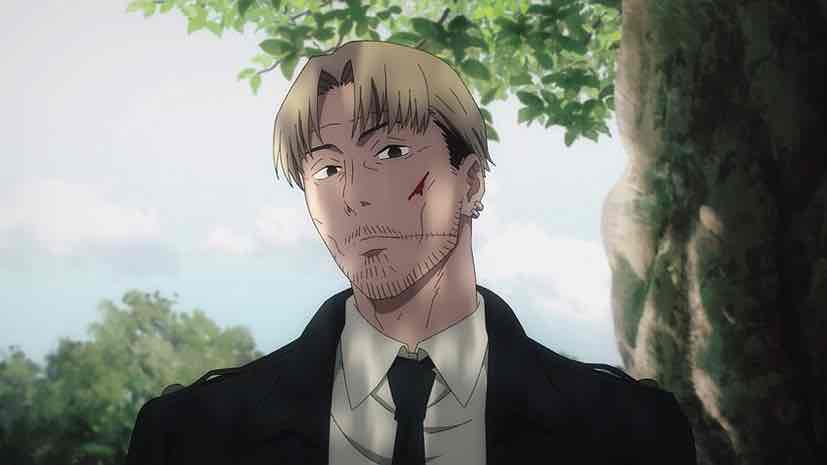
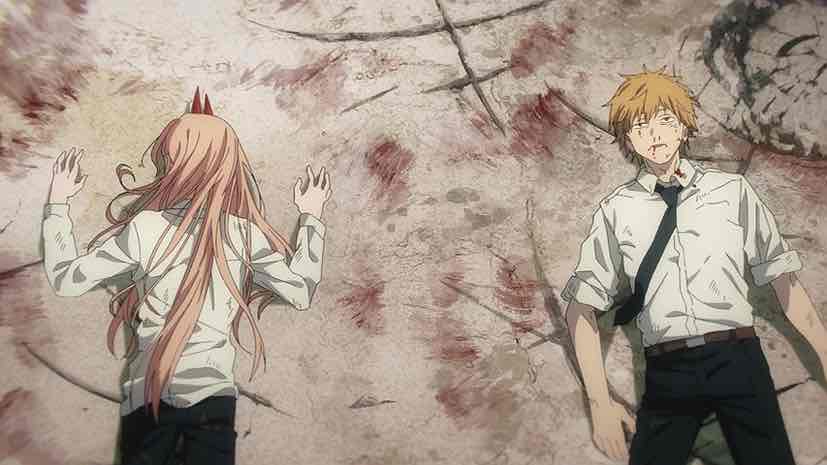
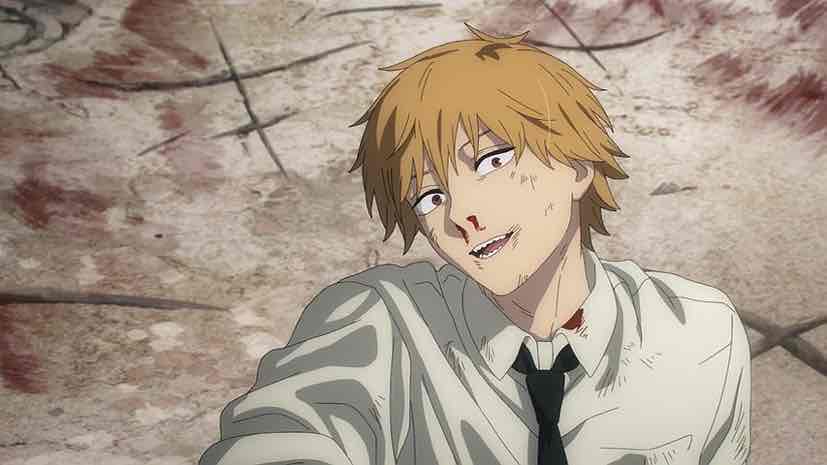
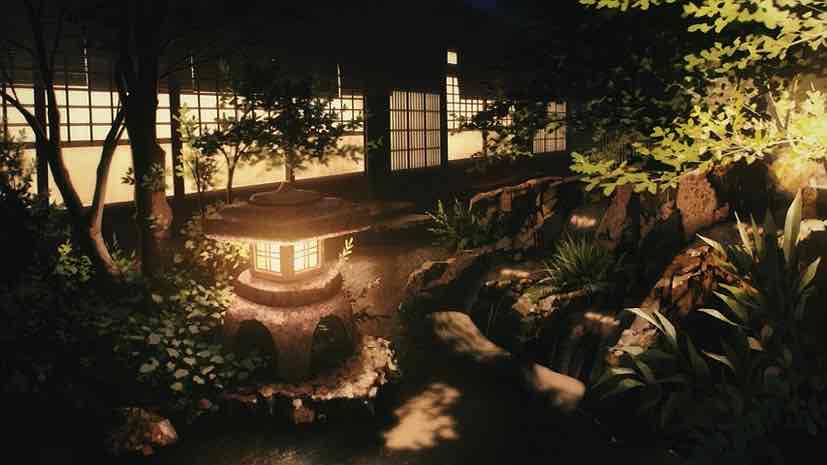
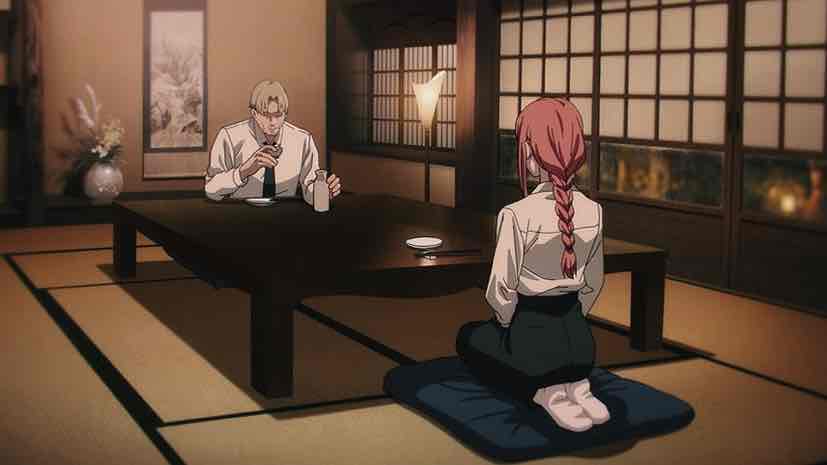
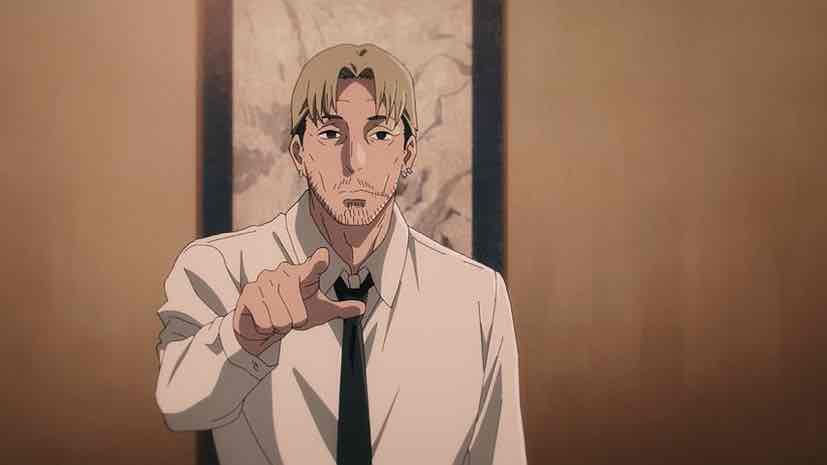
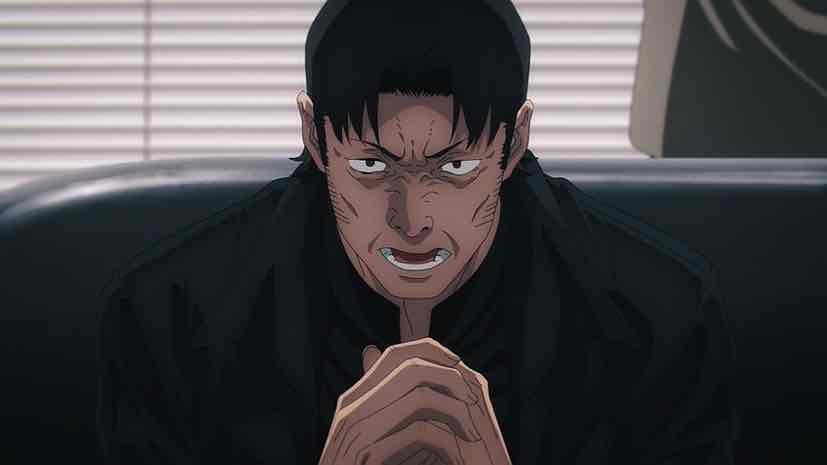
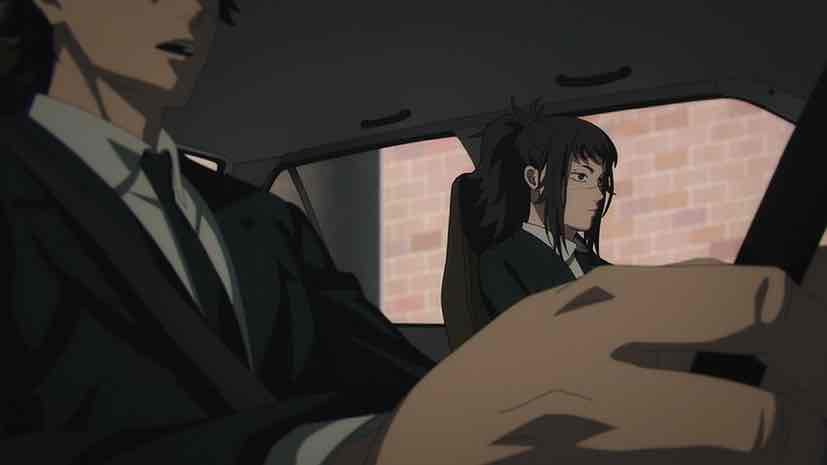
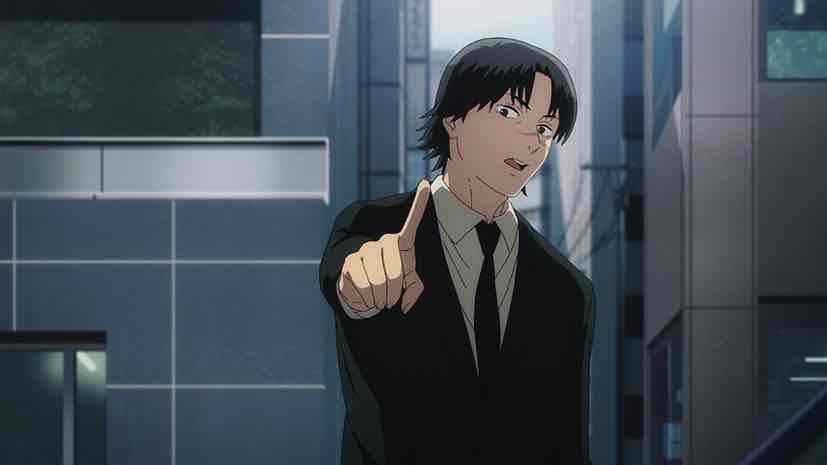
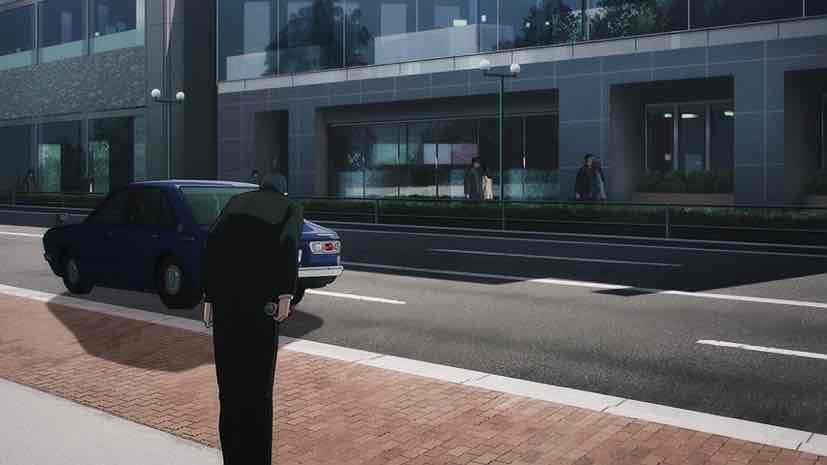
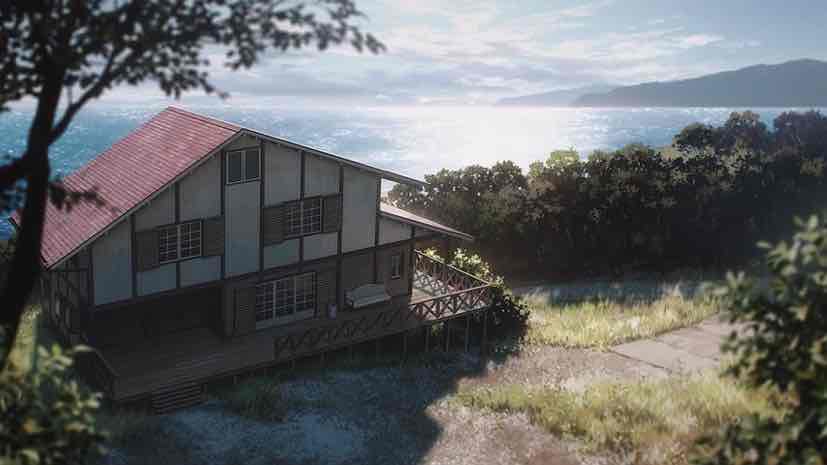
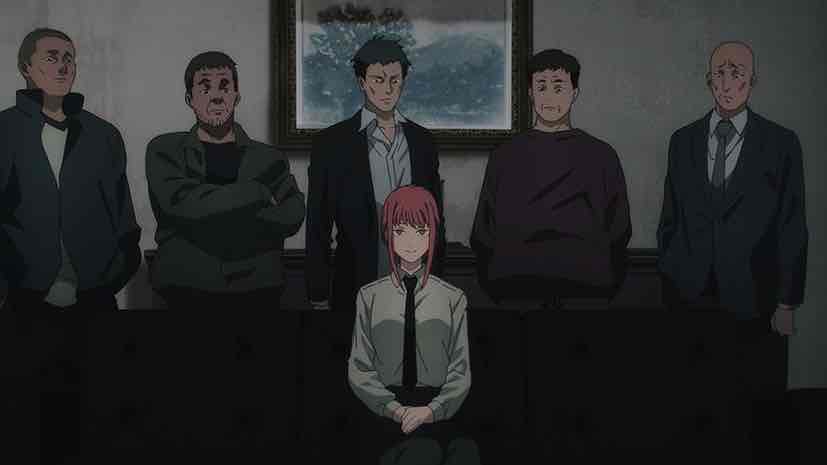

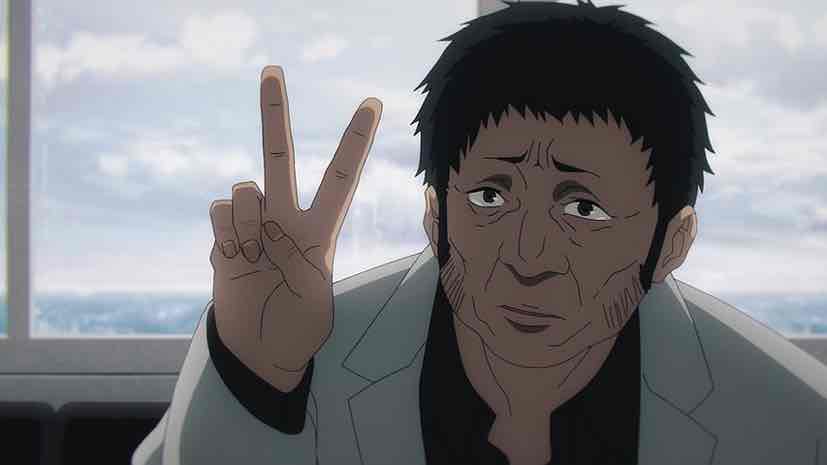

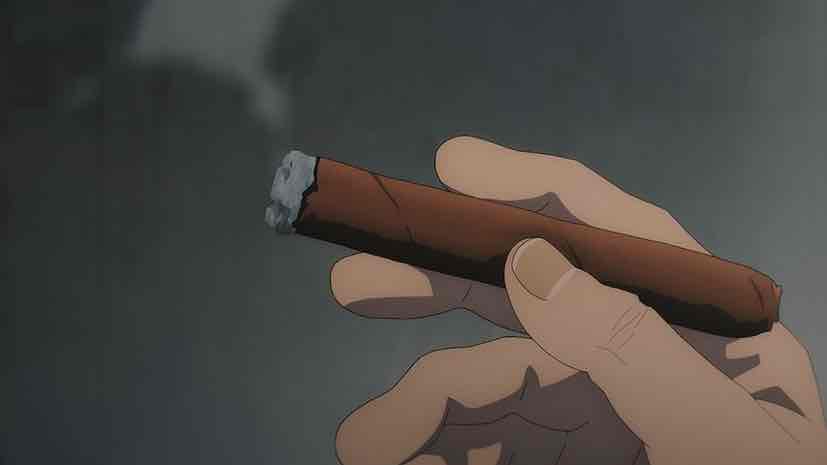
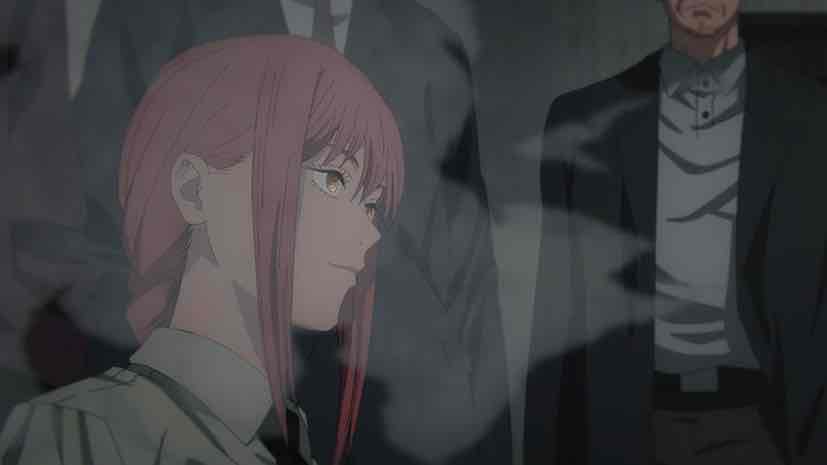
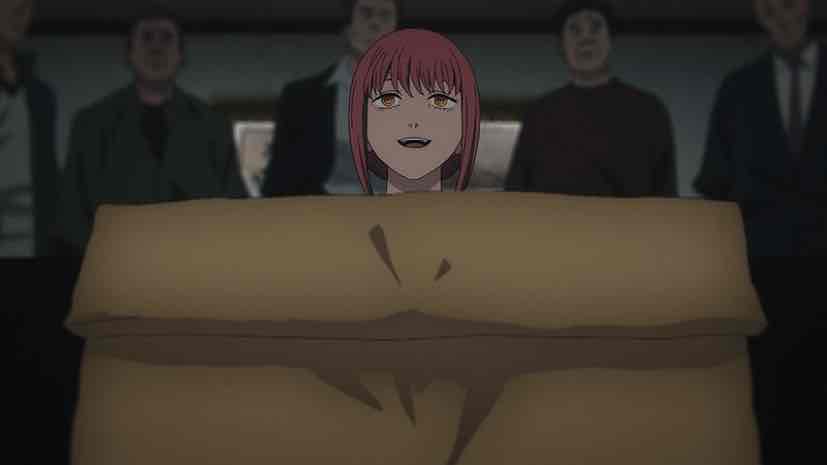
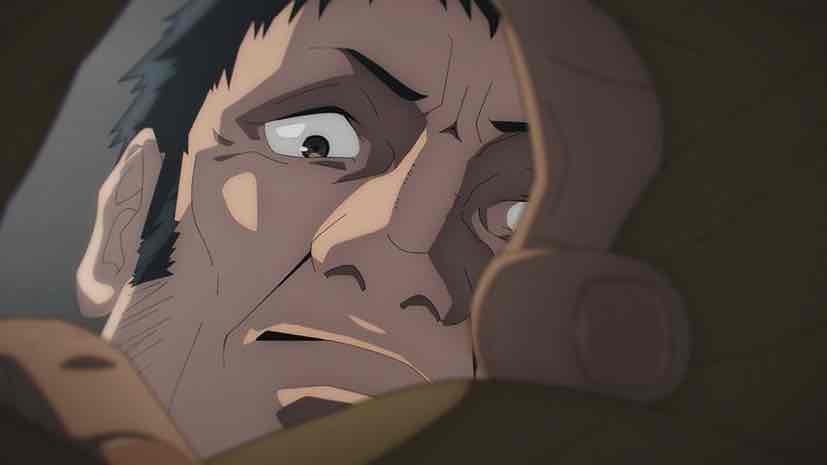
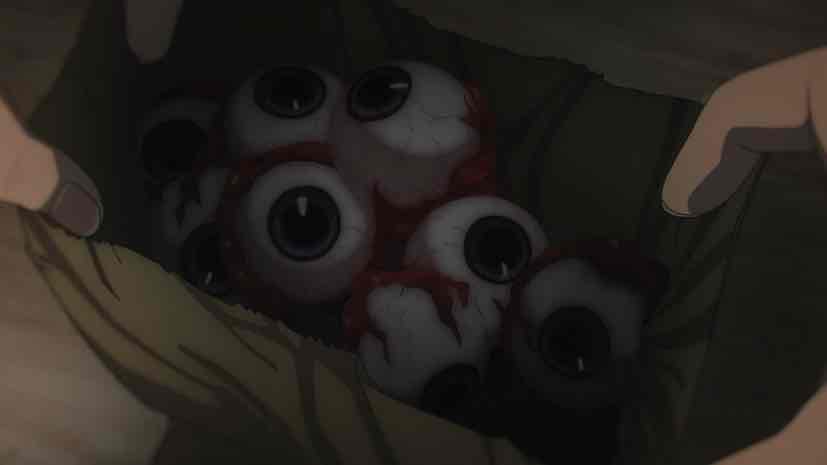
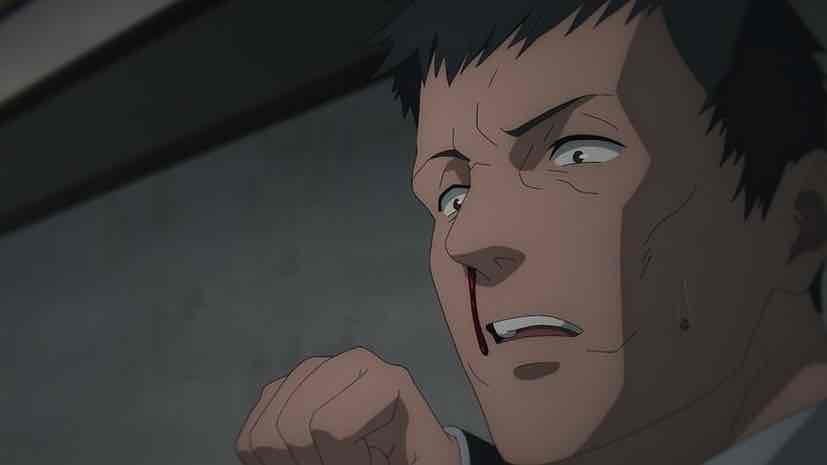

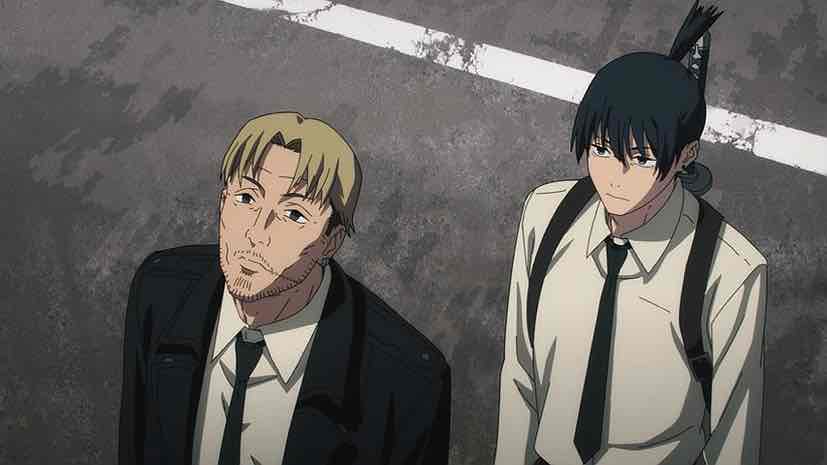


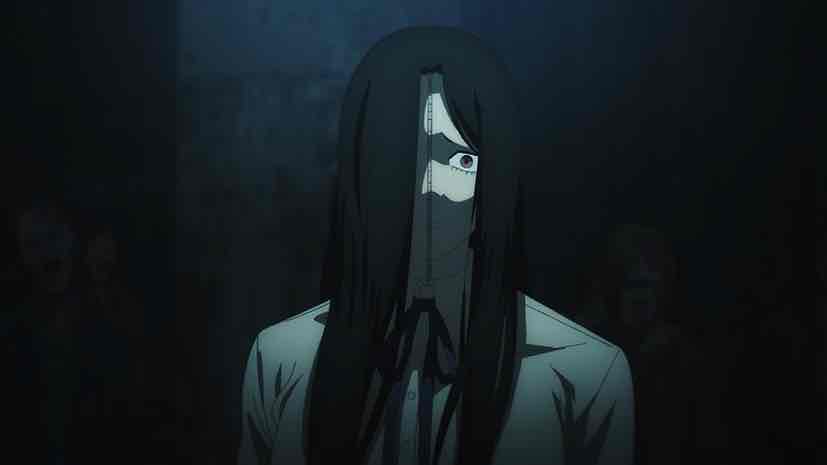
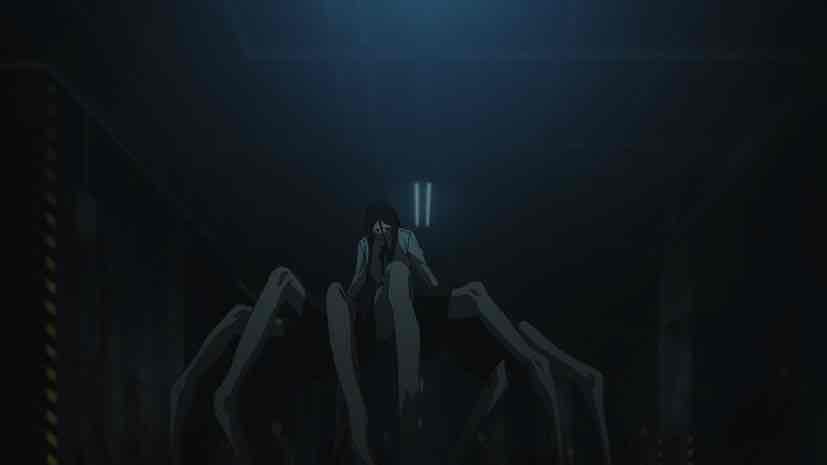
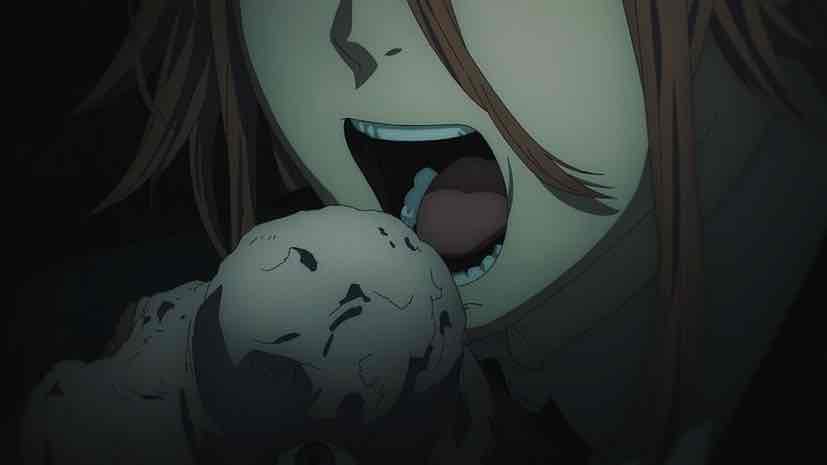
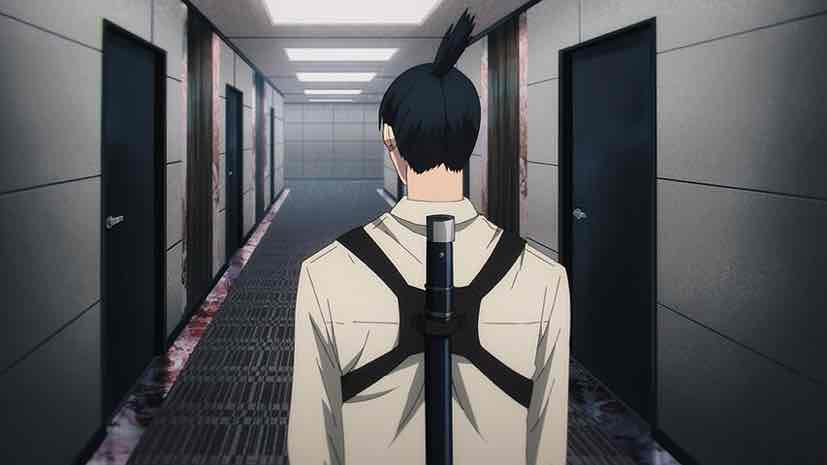
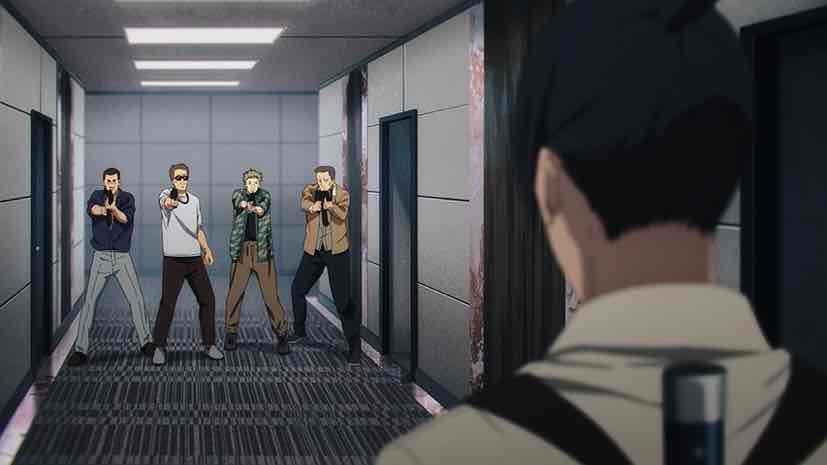
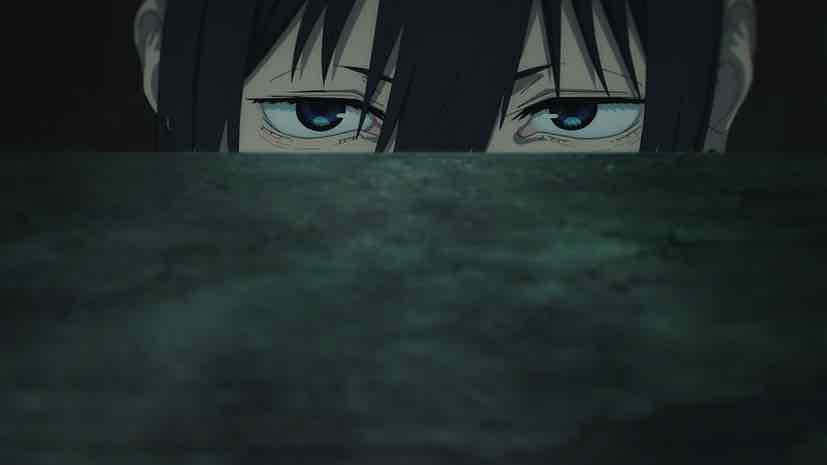

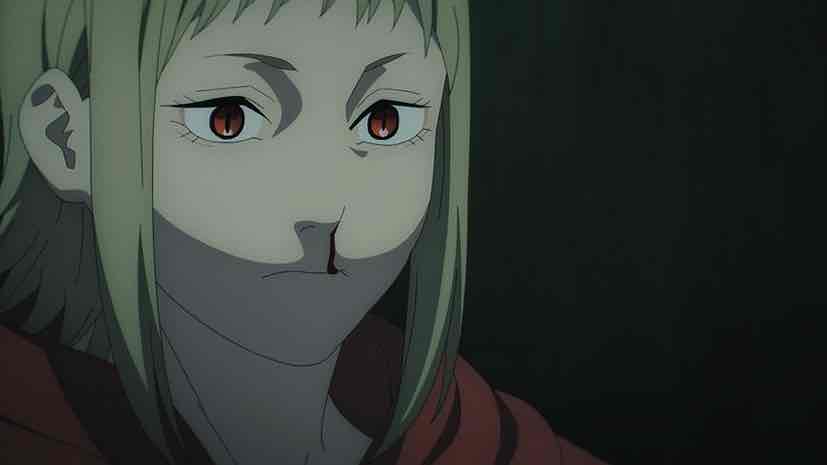


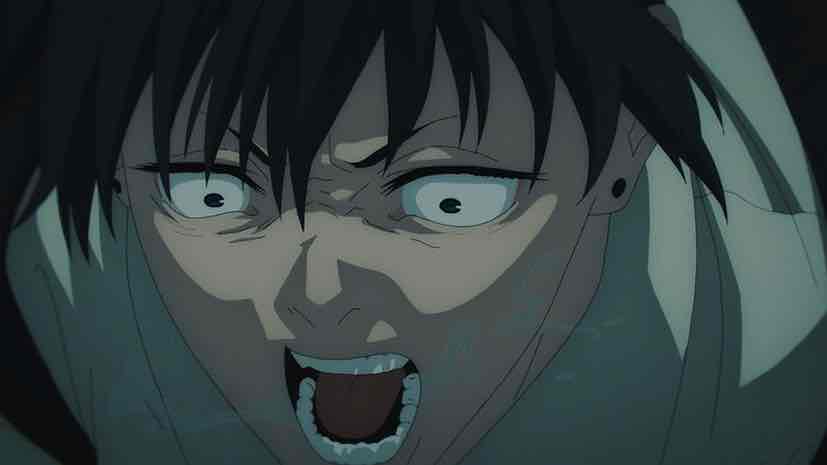
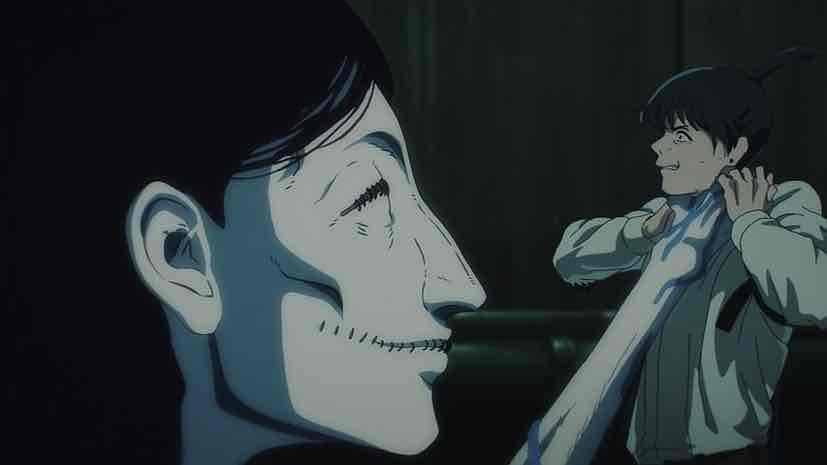
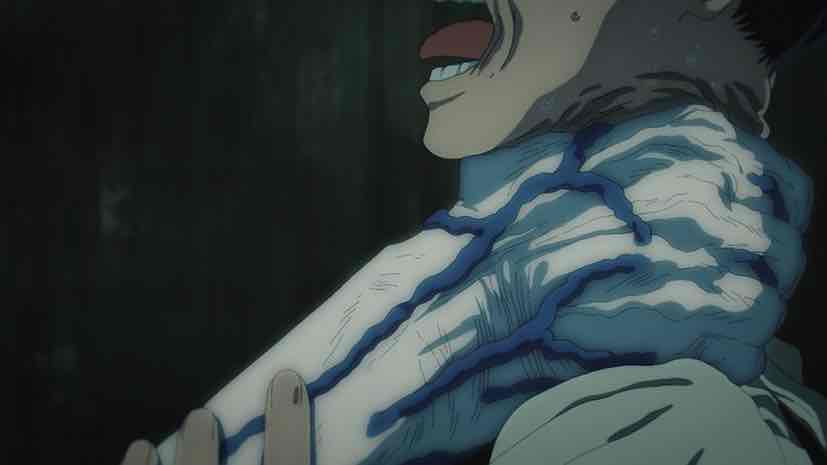
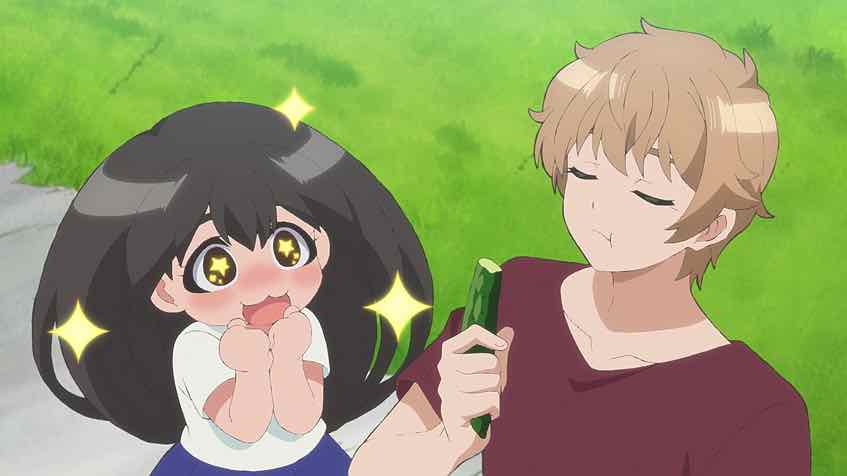
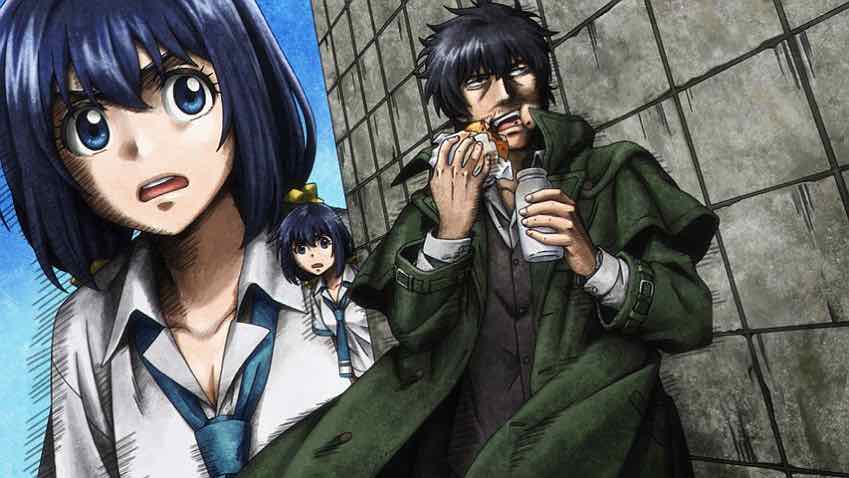
Patchy
December 22, 2022 at 3:14 amI didn’t like the previous chapter very much, but this one successfully redeemed the previous one because it was good at grounding what the previous chapter did. At least here in Mexico, the reception has been pretty bad in general, with people complaining everywhere that it isn’t as good as kimetsu or jujutsu (which I digress about, MHA is also panned harder each season).
What I like about the “training arc” that Denji and Power underwent is that it brings Denji and Power closer as people without needing a big dramatic moment to happen. I also like the contrast of Denji getting insight about his feelings and developing a little sliver of empathy (at least enough to ask himself if he would cry for others) against “healthier and saner” people like de special division guys that shouldn’t be as emotionally stunted but aren’t thinking for Aki’s sake pushing him into gambling even more of his short lifespan and only after the fact they show concern. Denji as a wild kid is, for me, a brilliant move that carries most of Chainsawman’s heart (oh look, a pun) because seeing him subtly developing is something I enjoy but it’s a double-edged sword because his lack of insights makes it so most of his development and intent stay as subtext because he can’t monologue as well as Tanjiro for example and f you don’t give the work the benefit of doubt then taken at face value it looks like it isn’t going anywhere.
I think your assessment of Fujimoto as someone talented but kind of a show-off is right. I do like to follow him because his works aren’t cookie-cutter and, with experience (if he doesn’t go lazy and repeats the same trick with different names), he may be able to deliver something great sometime in the future.
Guardian Enzo
December 22, 2022 at 8:58 amThat’s my hope. He has the talent to do great work (I think Eri is probably the closest he’s come so far) but he needs to dial it back sometimes and not everybody that gifted ever figures that out.
Joshua
December 22, 2022 at 1:18 pmThere’s a bit of an irony in what you said about CSM’s reception in Mexico, because it’s become something that’s unsettling me for quite some time in the world of entertainment. It’s this belief that in the wake of the superherofication of everything in media, particularly with Marvel’s explosive popularity overshadowing everything else, that they need to be not only of super high quality, but must also be expensive looking with elaborate CG sequences and fights, but *also* must come out near-regularly in theaters and on steaming services, or else they will be dismissed on the spot as “mid”. Anything that’s not an expensive Marvel-esque blockbuster or show full of those elaborate, flashy fights, glib quippy comedy and fan service galore is routinely written off. And you wonder why VFX artists are going through an eerily similar crisis to Japanese animators.
And that’s where we’re at with what you’re saying how it’s being shat on just because it’s not Demon Slayer. Everything must be simple and archetypal; everything must not only be faithful to the manga, but supersede it; everything must have those blinding, sakuga-filled flashy fights every single time; and they must come out relatively frequently as well. Anything that doesn’t follow that is written off as “mid”. It’s a terrifying thought seeing just how homogenized the landscape is becoming, not just in the content being put out, but the expectations being put in place much like the aforementioned blockbuster film landscape in this superhero/streaming film age. People are now expected to expect the very same all of the time or else it’s garbage.
“And when everyone’s super, no one will be.”
sonicsenryaku
December 22, 2022 at 11:08 pmWell there are ways to produce quality in a way that doesn’t homogenize the work, no? I think the expectations you’ve described come from a skewed and uninformed perspective as to what quality is supposed to be. I think it’s valid to want your media to always boast some high-level of quality; now in what form do we expect our standard of quality; how we’re evaluating quality, is what needs to be scrutinized and properly evaluate to determine whether the process to try and attain quality media is healthy and productive